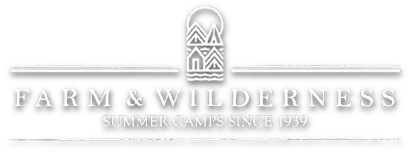Flying Cloud is fundamentally about two things:
- connecting with nature and
- connecting with each other
That means playing in the forest, and making new friends.
It means learning local plants and animals, and learning how to listen and share.
It means recognizing the hazards in nature, and recognizing how we can each grow in our relationships.
Connection to nature brings us inner peace and connection to each other gives our lives meaning.
Today I want to share with you a golden nugget of counseling wisdom that we’ve been working with this summer at Flying Cloud. There’s an organization called the Arbinger Institute that does work around Peacemaking and helping people and organizations enhance their self-awareness. Central to their work is an idea about how we each are in the world. They call this our “way of being” and argue that, we can only have a heart that is “at peace” with others (and nature) or “at war”. This breaks down to a question of whether, in our relationships we’re seeing the other parties as people or as objects, and how we treat them based on that choice.
I’m writing about this today because this is a challenge that everyone faces. It’s human. We all have days where we can’t see another person’s humanity, but instead get caught up in just seeing them as a problem, or as something less then ourselves. The work we’ve been doing this summer is around trying to see when that happens to us as counselors and work to address it. The result is that we try to focus more and more of our energy on building strong relationships with campers. We try to get to know them as deeply as we can, and to know their friends and the other relationships that they value. We work hard to listen to their stories and to learn from them. When we teach, we try to explain why we’re teaching as we are, and why we think it’s worth learning, and on the occasion where we have to correct a behavior, we try to do it while constantly maintaining an awareness of the other person’s struggles, dreams, fears, hopes, passions and emotions.
We’re not perfect, and of course we stumble in this process. Who hasn’t answered a question a bit more shortly than they wished they had? Who hasn’t said something they regretted later? The point isn’t to be perfect, but to be trying, and to continually push towards seeing everyone as human and therefore just as important as we are. In our efforts to achieve this, a book called the Anatomy of Peace has been profoundly helpful, and I want to strongly encourage each of you to get a copy. If reading an entire book is too much, I totally understand. At a minimum I ask that you take twenty minutes to read through this short article focused on parenting called “The Parenting Pyramid”. I believe that you’ll find it useful and I hope that you’ll be able to apply it with your son and with others in your life.
If you do read the book and it touches you as much as it’s affected many of us, we would love to hear from you about your experience. It’s proven challenging to try to live this way, but it’s also been really amazing, and I personally can see it touching many of my relationships with the FC staff and campers this summer.




